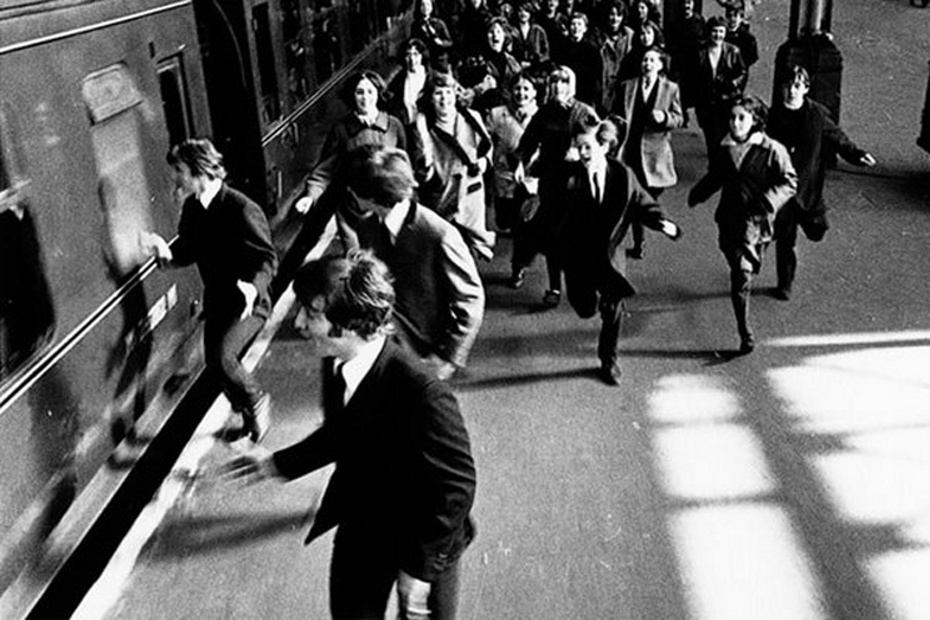Super-fans and groupies are hardly a new phenomenon. We’ve all seen old newsreel footage of the Beatles making teenage girls faint in the 60s, and when Take That split in the 90s, a national helpline was set up to soothe the group’s devoted following. But due in no small part to the social media boom, today’s super-fans or “stans” are much more demanding. They don’t just offer unwavering adoration — they seem to want something more back from their idols.
Social media has made us feel closer than ever before to our favorite artists, and we can now spot when an account is obviously being controlled by a marketing team rather than a real person. Britney Spears fans have written lengthy blog posts discussing the way that “Godney” gradually seems to have taken control of her own Instagram over the last year, making it quirkier and more personal, rather than the bland PR platform it once was. Lady Gaga’s little monsters are especially spoiled for choice when it comes to “connecting” with their idol: since last month, they’ve been able to follow her on Snapchat as well as Twitter, Facebook, and Instagram.
But when an artist like Frank Ocean steers clear of social media, fans can feel like they’re being kept in the dark — and get nasty. In April 2015, the singer’s spokesperson confirmed that a new album and some kind of accompanying magazine would be released that July, but neither actually arrived. Since then, there’s been no official update on his follow-up to 2012’s modern masterpiece Channel Orange. If you type “Frank Ocean” into Twitter, you’ll find messages ranging from the innocuous — “Where your album at @ FrankOcean” — to the frighteningly full-on. “I’ve been waiting for Frank Ocean but now I’m starting to get mad at him. Like just drop anything, even a spoon!” one fan tweeted last week, while another suggested: “this man frank ocean gives no fucks about his fans lol.” One recent tweet even resorts to casual homophobia in the name of venting some frustration.
Given that Frank Ocean doesn’t have a Twitter account, the most a tweet like this can achieve is an empathetic response from a fellow fan. But though Ocean hasn’t played the social media game for years, he will surely have gleaned through friends and colleagues that fans are now clamoring rather aggressively for his new material. It would take a pretty staunch artist not to be affected by this in some way and it’s not difficult to imagine this pressure interfering with his creative process. In recent months two huge artists who are relatively active on social media have both released albums that fans had been whipping themselves into a frenzy over for months. Would Anti and The Life of Pablo have been even better if Rihanna and Kanye West had been less aware that so many people were desperate to hear their new music, like, A.S.A.P.?
But however intensely RiRi and Yeezy may have felt the pressure from fans, up-and-coming artists who use social media platforms to build their careers have it worse. One rising star who is acutely aware of her fans’ expectations is Halsey, who’s spoken about having a “special bond” with the online followers who supported her since before she landed a record deal, when she was simply an aspiring singer-songwriter with a SoundCloud page. Because Halsey’s online popularity has played such a key role in her current success (her debut album Badlands peaked at number two in the US last year), her fans expect more from her in return. It’s interesting to speculate how deep their sense of entitlement might run: do some of Halsey’s fans even feel like they “made” her?
Last month a video of Halsey losing her cool because of fan pressure appeared online. “I’ve been in press since eight o’clock in the morning. I have a whole day of interviews to do. I’m still doing them,” she tells fans congregating outside BBC Radio 1 in London. “I would never walk by and just not meet you, so to abuse me online like that is kind of fucked up. I have a lot more interviews to do and I promise I’m going to meet people, but please don’t be mean to me.”
As Halsey’s schedule gets more hectic, she clearly needs her fans to adjust their expectations. After all, it’s unrealistic for her to give her online following the same level of attention now she’s a signed artist working to a major label’s demanding promo schedule. Troye Sivan, who has a broadly similar background of social media support to Halsey, told Noisey last year that his fans stopped tweeting him fan fiction “shipping” him into imaginary relationships with other singers when they realized it was making him uncomfortable. So an artist’s relationship with fans can definitely evolve in a respectful way, but at the moment, it’s hard not to feel that some devotees are still expecting too much.
We all want to hear amazing new music from our favorite artists — and we know that if we share our excitement on social media, other fans will respond. But it’s a slippery slope and at some point collective excitement for a new album like Frank Ocean’s could easily become something counter-productive and even destructive. Maybe it’s time for us all to re-learn the value of patience.
Credits
Text Nick Levine
Still from Hard Day’s Night
